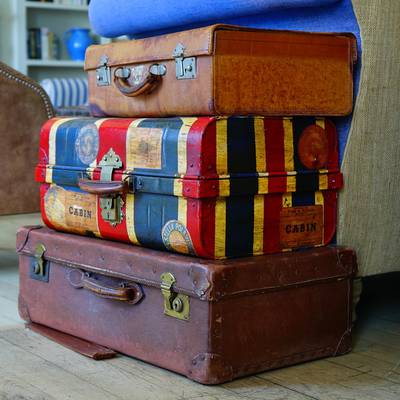
What am I allowed to take with me to Italy?
Italy, the land of delightful culinary discoveries, scenic landscapes, footprint of ancient civilization, mesmerizing art, and fashion, each year beckons millions of tourists from around the globe. Before you splash some Italian phrases, take in the exquisite Vatican-scape or soak in the Tuscan sun, it's important to abide by certain custom laws and practicalities while packing for Italy.
Personal Belongings and Travel Essentials
Travel Documents: You will need to carry your Passport with at least six months of validity. Non-European Union visitors will need to carry a Return-ticket & enough finances for the stay-demonstration. Uninterrupted stay beyond 90 days will necessitate a Visto per Turismo (Tourist Visa).
Cash: You're allowed to carry up to €10,000 or its equivalent in other foreign currencies. For amounts greater than this, you must declare the amount coming into or out, failing which can cause penalties.
Medications: If you're on prescribed medications, bring them in their original packages, accompanied by the prescription & preferably a letter from your doctor.
Tobacco, Alcohol, and Food
When entering Italy, some restrictions apply to alcohol, food and tobacco for non-commercial use.
Tobacco: Adults (over 17) can bring 200 cigarettes, 100 cigarillos, 50 cigars, or 250g other smoking tobacco.
Alcohol: Adults (over 17) can bring 4 liters of non-sparkling wine, 16 liters of beer, 1 liter of spirits over 22%, or 2 liters of alcoholic beverages not exceeding 22%.
Food: You can bring up to 2Kg Non-Animal-Origin products for personal consumption. However, Meat and dairy products from non-EU countries are prohibited. Certain exceptions apply for powdered baby milk, baby food, and special foods required for medical reasons.
Electronics and Valuables
Gadgets like mobile phones, laptops, cameras can be brought into Italy without any duty, provided they are for personal use and not meant for resale. However, any Antique artwork, items of historical value, firearms, and ammunition will need special permission from the Cultural Heritage Department.
Cultural Respect and Appropriate Clothing
Aside from tangible items, what you "bring" with you to Italy also includes your attitude and dress sense, particularly if you plan on visiting religious institutions or rural areas.
Religious Institutions: Italy, being home to the Vatican City, is steeped in religious history and sacred sites. It's important to respect these spaces by dressing appropriately. Avoid wearing shorts, short skirts, or bare shoulders.
Rural Areas: In rural areas, it's advisable to dress more conservatively. Italians are known for their sense of style, so your best bet is to err on the side of smart-casual.
Swimwear: When visiting coastal areas or lake regions, it's okay to wear beach attire on the beach, but it's customary to cover up when leaving the beach area.
Neglected and Unwanted Items
Counterfeit Items: It's illegal to purchase counterfeit goods, including fake designer brands.
Drugs: Italy operates a strict policy on illegal substances. Drug use is taken seriously, with heavy fines and potential imprisonment.
Conclusion
Italy offers a rich tapestry of cultural experiences, historical gems, and spectacular landscapes that is sure to make your trip memorable. Knowing what you're allowed to take with you - and what you're not - can save you hassles at customs and help you to respect local customs and traditions.





